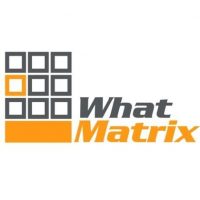|
|
|
VM |
|
|
|
VM micro (below 1 vCPU)
Details
|
1vCPU minimum

Smallest vm size is 1vCPU
|
EC2 instances nano, micro, small

https://aws.amazon.com/ec2/instance-types/
|
ecs.n1.tiny

https://www.alibabacloud.com/product/ecs
|
|
|
VM Small (up to 8 vCPU)
Details
|
Available : Configurable mem up to 64GB

|
EC2 instances medium, large, xlarge,

https://aws.amazon.com/ec2/instance-types/
|
ecs.c1.large and ecs.n1.xlarge series

https://www.alibabacloud.com/product/ecs
|
|
|
VM Medium (up to 16 vCPU)
Details
|
Available : Configurable mem up to 128GB

|
EC2 instances 2xlarge

https://aws.amazon.com/ec2/instance-types/
|
ecs.c2.large and ecs.n1.3xlarge

https://www.alibabacloud.com/product/ecs
|
|
|
VM Large (up to 32 vCPU)
Details
|
Available : Configurable mem up to 242GB

|
EC2 instances 4xlarge

https://aws.amazon.com/ec2/instance-types/
|
ecs.n1.7xlarge and ecs.sn1.7xlarge

https://www.alibabacloud.com/product/ecs
|
|
|
VM XLarge (up to 64 vCPU 128GB RAM)
Details
|
Max 56 core with mem up to 242GB

|
EC2 instances 10xlarge

https://aws.amazon.com/ec2/instance-types/
|
largest instance is 56 vCPU

https://www.alibabacloud.com/product/ecs
|
|
|
VM XXLarge (up to 128 vCPU 2TB RAM)
Details
|
Not available as VM (Baremetal option : per Month)

https://www.ibm.com/cloud-computing/bluemix/gpu-computing
|
EC2 instance 32xlarge

https://aws.amazon.com/ec2/instance-types/
|
No

https://www.alibabacloud.com/product/ecs
|
|
|
GPU VM Large (up to 32 vCPU)
Details
|
Not available as VM (Baremetal option : per Hr / Month)

https://www.ibm.com/cloud-computing/bluemix/gpu-computing
|
It is possible to add a GPU to every current generation EC2 instance

https://aws.amazon.com/ec2/instance-types/
|
ecs.gn5-c28g1.14xlarge

https://www.alibabacloud.com/product/gpu
|
|
|
GPU VM XLarge (up to 64 vCPU 128GB RAM)
Details
|
Not available as VM (Baremetal option : per Hr / Month)

https://www.ibm.com/cloud-computing/bluemix/gpu-computing
|
It is possible to add a GPU to every current generation EC2 instance

https://aws.amazon.com/ec2/instance-types/
|
largest instance is 56 vCPU

https://www.alibabacloud.com/product/gpu
|
|
|
GPU VM XXLarge (up to 128 vCPU 2TB RAM)
Details
|
No generally available Baremetal option

https://www.ibm.com/cloud-computing/bluemix/gpu-computing
|
It is possible to add a GPU to every current generation EC2 instance

https://aws.amazon.com/ec2/instance-types/
|
No

https://www.alibabacloud.com/product/gpu
|
|
|
|
Nvidia Tesla P100, M60, K80, Grid K2 (monthly & hourly options)

https://www.ibm.com/cloud-computing/bluemix/gpu-computing
|
Yes, with up to 16 NVIDIA Tesla® K80 GPUs, 192GB of total video memory, 40 thousand parallel processing cores yielding 70 teraflops of single precision floating point performance and over 23 teraflops of double precision floating point performance using P2 EC2 instances

https://aws.amazon.com/about-aws/whats-new/2016/09/introducing-amazon-ec2-p2-instances-the-largest-gpu-powered-virtual-machine-in-the-cloud/
|
Nvidia Tesla P100 GPU

https://www.alibabacloud.com/product/gpu
|
|
|
|
Standard config types for public VMs. Private host VMs can be configured

|
No

There are a lot of instance types with different CPUs and memory, but it is not possible to use a custom VM instace type
|
No

|
|
|
Defined disk IOPS
Details
|
Not available as local disc (available with SAN)

|
EBS Optimized instances provided dediated storage network

http://docs.aws.amazon.com/AWSEC2/latest/UserGuide/EBSOptimized.html
|
Users can choose SSD storage, but they cannot specify IOPS

https://www.alibabacloud.com/starter-packages/general
|
|
|
|
Not supported

|
Supported on some instance types

|
No native SR-IOV support

|
|
|
|
1 x public / 1 x private : Can add 1 private but no ability to add additional

|
Low, moderate, high, 10Gbps, 20Gbps.
Depending of the instance type from 450 Mbit until 20 Gbit

https://aws.amazon.com/ec2/details/#enhanced-networking
|
Based on selected network bandwidth peak between

Data Transfer: Charges are determined by the amount of Internet data transferred to the Instance (usually calculated by GB). To help prevent high charges from sudden traffic, users can designate the Instance bandwidth. Users that don’t mind fluctuating costs to meet the Instance Internet network demands would prefer this billing type.
|
|
|
|
No ability to add vNIC

|
All instances in a VPC can add 1 until 14 virtual NICs, depending of the instance type (this is not possible in the EC2-Classic platform, but this platform is not recommended)

https://aws.amazon.com/vpc/
|
No. Can add multi-queue for NICs

Can only add addresses to VPC https://www.alibabacloud.com/help/faq-detail/38742.htm or use multi-queue for NICs https://www.alibabacloud.com/help/doc-detail/52559.htm
|
|
|
Attached / detach block storage
Details
|
Limited ability with portable storage

|
It is possible to detach block storage from an unmounted volume on a EC2 instance and attach block storage to an EC2 instance

https://aws.amazon.com/ebs/
|
Yes, including Shared Block Storage

Shared Block Storage can be attached to up to 16 VMs concurrently
https://www.alibabacloud.com/help/faq-detail/53820.htm
|
|
|
Virtual dedicated cloud
Details
|
Virtual network created at L2 VLAN level.

|
Every EC2 instance will be part of a VPC (Virtual Private Cloud)

https://aws.amazon.com/vpc/
|
Alibaba Cloud Virtual Private Cloud (VPC) is an isolated cloud network built for private usage.

https://www.alibabacloud.com/product/vpc
|
|
|
|
Can assign portable public / private IPs

|
Possible with Elastic IP Addresses

An Elastic IP address can be reassignment to another EC2 instance
|
Only Elastic Ips

https://www.alibabacloud.com/help/doc-detail/54479.htm
|
|
|
|
Image |
|
|
|
Manual snapshots image
Details
|
Supported

|
Can create Amazon Machine Image (AMI) from EC2 instance

http://docs.aws.amazon.com/toolkit-for-visual-studio/latest/user-guide/tkv-create-ami-from-instance.html
|
Can create system image

https://www.alibabacloud.com/help/doc-detail/25389.htm
|
|
|
Scheduled snapshot image
Details
|
Not available as native service (could script through API)

|
Not available as native service

It is quite easy to create a solution in AWS. See for example: https://aws.amazon.com/answers/infrastructure-management/ebs-snapshot-scheduler/
|
Scheduled tasks are supported, but not for VM image

https://www.alibabacloud.com/help/doc-detail/25957.htm
|
|
|
API / CLI Snapshot image
Details
|
Supported

|
Available

|
Scheduled tasks are supported, but not for VM image

https://www.alibabacloud.com/help/doc-detail/25957.htm
|
|
|
Make image public / marketplace
Details
|
Supported

|
AWS Marketplace is available to publish and sell application images

https://aws.amazon.com/marketplace/
|
Only through Marketplace

https://www.alibabacloud.com/marketplace
|
|
|
|
ISO & VHD imports supported

https://knowledgelayer.softlayer.com/procedure/import-image
|
You can import Windows and Linux VMs that use VMware ESX or Workstation, Microsoft Hyper-V, and Citrix Xen virtualization formats.

Import using AWS CLI; some limitations exists.
https://aws.amazon.com/ec2/vm-import/
|
Supports RAW and VHD format

https://www.alibabacloud.com/help/doc-detail/25464.htm
|
|
|
|
VHD image export

https://knowledgelayer.softlayer.com/procedure/export-image
|
you can export previously imported EC2 instances to VMware ESX, Microsoft Hyper-V or Citrix Xen formats.

Export using AWS CLI; some limitations exists.
See: http://docs.aws.amazon.com/vm-import/latest/userguide/vmexport.html
|
Must request for export function to be whitelisted

https://www.alibabacloud.com/help/doc-detail/58181.htm
|
|
|
|
O/S |
|
|
|
|
Windows Server 2012, 2012R2, 2016 Standard edition

|
Amazon EC2 currently supports a variety of operating systems including: Amazon Linux, Ubuntu, Windows Server, Red Hat Enterprise Linux, SUSE Linux Enterprise Server, Fedora, Debian, CentOS, Gentoo Linux, Oracle Linux, and FreeBSD.

Windows Server 2016 Base, Nano, with Containers
Windows 2012R2
Windows 2012
Windows 2008R2
Windows 2008, 32 bits en 64 bits
Windows 2003, 32 bits en 64 bits
|
Windows Server 2008 and 2012, Standard, Data Center, and Enteprise, English and Chinese

https://ecs-buy-intl.aliyun.com/
|
|
|
|
Redhat, Ubuntu, Debian, CentOS, Cloudlinux, CoreOS

|
Amazon EC2 currently supports a variety of operating systems including: Amazon Linux, Ubuntu, Windows Server, Red Hat Enterprise Linux, SUSE Linux Enterprise Server, Fedora, Debian, CentOS, Gentoo Linux, Oracle Linux, and FreeBSD.

Almost every Linux distribution is available
|
CentOS, Ubuntu, Debian, FreeBSD, SUSE, and Alibaba Linux as well as CoreOS

https://ecs-buy-intl.aliyun.com/
|
|
|
Bring your own OS
Details
|
Supported (at own risk)

|
Yes, you can bring your own Microsoft license

https://aws.amazon.com/windows/resources/licensing/
|
No

|
|
|
|
Control |
|
|
|
Resize existing VM
Details
|
Resize vCPU, memory, network speed

|
Resizing of a VM which is EBS backed supported

Resizin EBS backed instance can been done however a new public IP assigned, Elastic IP preserved. A store backed VM requires creation of an Amazon Machine Image AMI which can be re-instantiated with a different instance size. http://docs.aws.amazon.com/AWSEC2/latest/UserGuide/ec2-instance-resize.html
|
No

|
|
|
VM Live Migration
Details
|
Recovery processes not clearly defined. SLA for recovery defined (in hrs)

|
If a host fails and the EC2 instance uses EBS, it is possible to start the EC2 instance on another host manually or automatically with monitoring and scripting; if an EC2 instance is installed on instance store and de host fails, the EC2 instance is lost

Some work-arounds are: using an auto scaling group, create a script and use Cloudwatch to trigger this script, in case of degraded hardware stop the instance and start it again; it will start on healthy hardware
|
No

|
|
|
|
Supported

|
Accomplished using tags

http://docs.aws.amazon.com/AWSEC2/latest/UserGuide/Using_Tags.html
|
Limited to pre-defined metadata types

https://www.alibabacloud.com/help/faq-detail/49122.htm
|
|
|
|
Powering off VM does not stop billing

VM needs to be deprovisioned to stop billing being incurred
|
Yes

You can stop and start an EC2 instance if EBS is used as storage solution; you dont pay for a stopped EC2 instance, only for the attached EBS storage
|
No

|
|
|
Provision in less than 5 mins
Details
|
Variable - often more than 5 mins

|
Yes

|
Yes

|
|
|
Provision consistent spec
Details
|
Although host performance is up to date, there is limited view of host specification

|
Consistent VM configs available

|
Instance generation types include specific CPU information

https://www.alibabacloud.com/product/ecs
|
|
|
Reserved instances
Details
|
Not available

|
Available

https://aws.amazon.com/ec2/pricing/reserved-instances/
|
Monthly subscription option only

https://www.alibabacloud.com/#pricing
|
|
|
|
Not available

|
Available

https://aws.amazon.com/ec2/spot/
|
No

|
|
|
Dedicated host (Single tenant)
Details
|
Dedicated host & dedicated Instances (pay per VM) available

https://www.ibm.com/cloud-computing/bluemix/virtual-servers
|
Available

https://aws.amazon.com/ec2/purchasing-options/dedicated-instances/
|
No

|
|
|
VM to host affinity (network optimised)
Details
|
Available on didicated hosts

https://www.ibm.com/cloud-computing/bluemix/virtual-servers
|
Available using a placement group

http://docs.aws.amazon.com/AWSEC2/latest/UserGuide/placement-groups.html
|
Only for containers

https://www.alibabacloud.com/help/doc-detail/56411.htm
|
|
|
VM to host anti-affinity
Details
|
Available on didicated hosts

https://www.ibm.com/cloud-computing/bluemix/virtual-servers
|
Manual

http://docs.aws.amazon.com/AWSEC2/latest/UserGuide/dedicated-hosts-instance-placement.html
|
No

|
|
|
Autoscaling VMs (within AZ)
Details
|
Supported (within DC)

|
Available using an auto scaling group

https://aws.amazon.com/autoscaling/
|
Yes

https://www.alibabacloud.com/product/auto-scaling
|
|
|
Autoscaling across AZs/Regions
Details
|
Not available

|
Autoscaling is possible across AZs, but not across Regions

https://aws.amazon.com/autoscaling/
|
Using Server Load Balancing

https://www.alibabacloud.com/product/server-load-balancer
|
|
|
|
Block storage |
|
|
|
|
Available (25GB & 100GB primary drive)

|
Available (instance store on magnetic disks and for some instance types on SSD disks)

Instance store is not persistent. If an instance stops or terminates, the data is lost. If an instance reboots, data in the instance store persists
http://docs.aws.amazon.com/AWSEC2/latest/UserGuide/InstanceStorage.html
|
Basic Cloud Disk

https://www.alibabacloud.com/help/doc-detail/25383.htm
|
|
|
|
Yes ability to define local storage (as SSD)

VM hosts have been upgraded to SSD based, however limited visibility when ordering. SAN based VM disks do not have SSD option, howevere additional Block and File based storage options with SSD (defined by IPS) are available https://www.ibm.com/blogs/bluemix/2016/11/intel-optane-ssd-testbed/
|
Available (instance store on magnetic disks and for some instance types on SSD disks)

Provisioned IOPS SSD volumes support up to 20,000 IOPS and 320 MB/s of throughput.
https://aws.amazon.com/ebs/details/
|
SSD Cloud Disk

https://www.alibabacloud.com/starter-packages/general
|
|
|
|
Available (25GB & 100GB primary drive)

|
AWS offers Elastic Block Storage (EBS) as SAN-style block storage

https://aws.amazon.com/ebs/details/
|
SSD Cloud Server

https://www.alibabacloud.com/starter-packages/general
|
|
|
Encryption at rest
Details
|
Not available on VM drives (only on additional attached storage)

https://www.ibm.com/cloud-computing/bluemix/block-storage
|
Available for both instance store and EBS volumes

Available for EC2 instance store volumes. See https://aws.amazon.com/blogs/security/how-to-protect-data-at-rest-with-amazon-ec2-instance-store-encryption/
Also available for EBS volumes. See http://docs.aws.amazon.com/AWSEC2/latest/UserGuide/EBSEncryption.html
You can use a default customer master key (CMK) that is unique to every AWS account or a custom CMK. Data and associated keys are encrypted using the industry-standard AES-256 algorithm. Amazon’s overall key management infrastructure uses Federal Information Processing Standards (FIPS) 140-2 approved cryptographic algorithms and is consistent with National Institute of Standards and Technology (NIST) 800-57 recommendations
|
For object storage

https://www.alibabacloud.com/help/doc-detail/31871.htm
|















